Proposition 6: Why local media might suffer if we move election day
It's hard enough to get people to pay attention; moving election day will make it worse
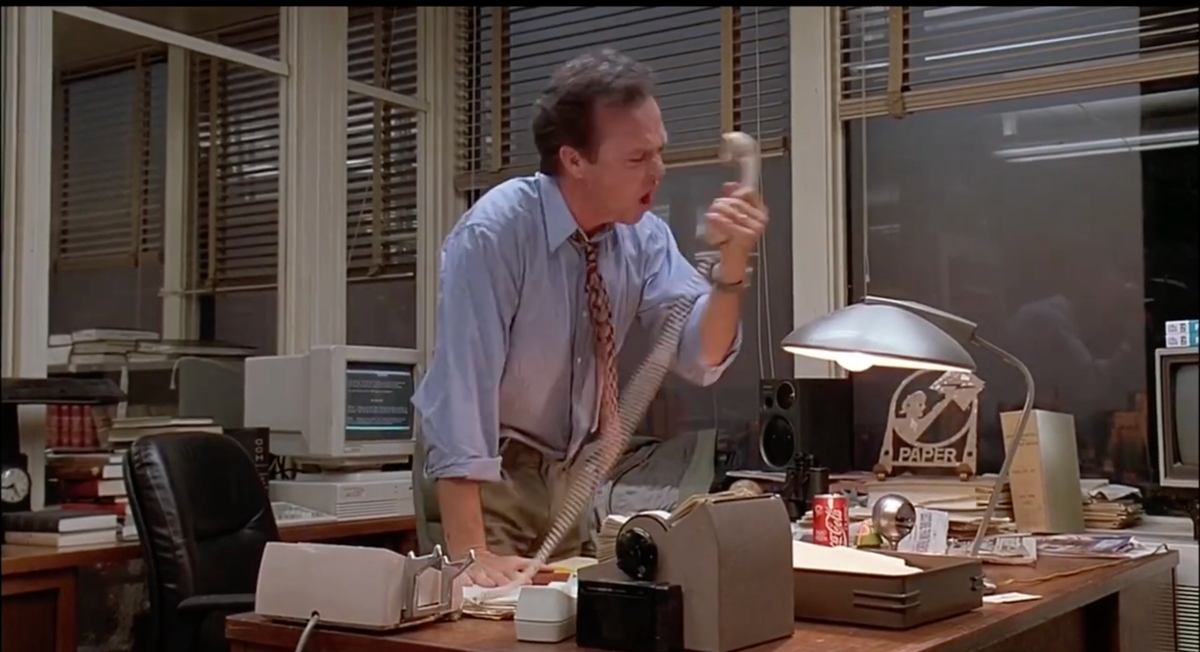
Subscribe to The Groove for free; become a member to support our work!
This is a story about our elections and your ballot this year, but let’s start in my favorite place: local journalism.
There are a billion(aire) reasons why local news has shrunk dramatically over the past two decades (which is a reason us non-billionaires started The Groove in the first place). But one that I particularly like to blame is the national obsession with the presidential race. It’s simply too much!
Big media organizations and cable news treat the presidential race like an every-four-year-Super Bowl, an event worthy of emptying out all the reporter and editor cabinets to cover. They post up in diners in Iowa for months to presage the Iowa caucuses, an event that doesn’t even have bearing on the eventual winner of the nomination. Cable stations put up countdown clocks to election day and put America in a stranglehold of polls and campaign gaffes. And for all that wall-to-wall coverage of the race, America is actually becoming less informed about the presidential race; attention rates are dropping, misinformation is growing and election news fatigue has people turning away from the news altogether, an aversion that affects local news like us too.
That is particularly offensive here in New York where our politics are, in my accurate opinion, so much more interesting than the woeful national scene. Sure, we may elect an alleged crook, fake vegan, club-rat quote generator like Eric Adams mayor, but at least he’s not going to get reelected! City officials vote on things like how much it should cost to die, whether a casino should loom over the Cyclone or how to get fresh groceries into your neighborhood; and yet, voter participation on a local level has remained abysmal. Most of all, you can actually do something about these people without feeling locked out by the Electoral College.
Now, getting back to local elections, Proposition 6 on the ballot this year asks if our citywide elections should be moved to even years to coincide with the presidential election. The idea is that this would increase voter turnout and participation, and decrease voter fatigue. As a local news reporter and general fan of participatory democracy, I’ve banged my finger bones bloody from screaming in print over my career that people need to pay attention to more than just the presidential race. This has not worked; this ballot proposition seems to me like a way of admitting defeat. Put the mayor’s race during the commercial breaks of the voting Super Bowl, the theory goes, and at least the number of people voting will go up.
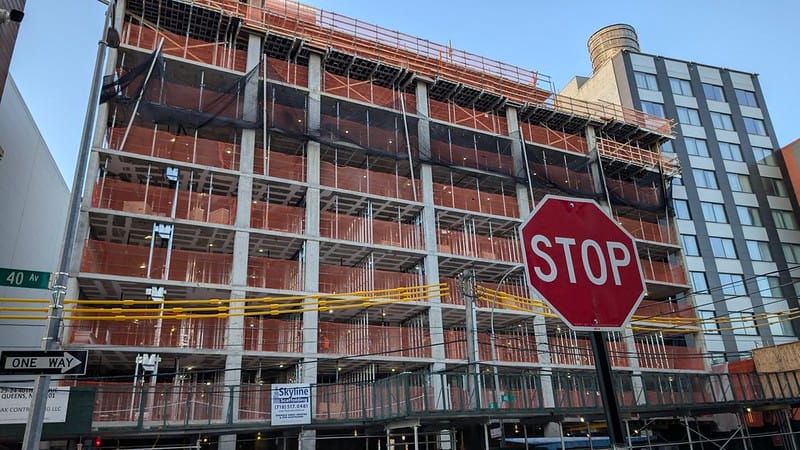
“Changing local election dates to coincide with higher level races is one of the most powerful reforms for increasing voter turnout,” the Center for Effective Government said in a 2024 report. It can often lead to double the rate of turnout for unsynced elections, with more representation of the electorate overall, the report says. If the ballot proposition succeeds, it would still need state approval to go into effect.
But “number go up” shouldn't be the only concern here: does more voter participation necessarily mean more democracy? It doesn’t sit right with me, as a New York supremacist, that we’d have to hitch our electoral wagon to the big loud violent circus in D.C., just to get more people to pay attention. It feels like saying you can listen to The Brian Lehrer Show but only if you listen to The Bob & Tom Show first.
Smarter political minds than me have discussed why moving the election date might be bad, so I called them up to chat about it. One is Fordham political science professor Christina Greer, one of the cohosts of the FAQ NYC podcast (plug to subscribe to this if you don’t already!), who rallied against the proposal on a recent episode.
“It will completely overshadow everything local,” Greer told me this week. “And I think it will also be an information overload for voters.”
She mentioned how she starts every class with a current events rundown; her students only have one thing on their mind.
“Every single day, every story they want to talk about is Trump, Trump, Trump,” she said. “I get it, he's the president. However, there’s many other stories we want to talk about. The mayor does a lot of things.”
The concept of “politics” for a lot of people, she said, is just distilled down to one person or one city, Washington D.C.
“No, the action is at home,” she said. “The president sucks up a lot of oxygen.”
Some of this is the fault of the big media organizations, that feel incentivized in whatever way to turn the full firehose blast of their coverage on the national politics every year, and all other news items are buried in that flood too. Toning that down and making room for other news to break through would help a lot, but it’s frankly not going to happen: the presidential sweepstakes, and all its color-war maps and graphics and whatever furniture company that makes those pundit roundtables, is big business.
If our local elections are moved to presidential years, what then happens to coverage of those local candidates, who are fighting for eyeballs from an already overworked voter base?
“The total amount of people paying attention to these contests is going to be even less,” Harry Siegel, the longtime city journalist and pundit who also cohosts the FAQ NYC podcast, told me. “The idea that this is good for democracy: this all very obviously stupid and bad.”
Increasing participation in the mayor’s race in November, he noted, is sort of moot: the race is mostly decided by the Democratic primary, which happened in June. Save for the Giuliani/Bloomberg stretch, the mayor of the city is always the winner of the Democratic primary. As people increasingly vote on party lines, that can give the mayoral winner a false sense of a mandate: did they really persuade all those voters, or did the voters all just vote D down the whole ballot?
The report I cited above from the Center for Effective Government advocates for making the changes listed in Proposition 6, but notes the study does not address a few issues, including: “Are voters in synced elections less well-informed about the candidates and issues at stake?”
There are other issues to consider beyond just the attention span. Greer pointed out that it’s already expensive for candidates to get their message out to voters; that cost will only increase if candidates are competing with national mailers and television ad space, she said.
Siegel said that the city’s mayor benefits from being elected off-cycle from other politicians; a new mayor can use their win as leverage for wins for the city. Think about a potential newly elected Mayor Mamdani, fresh off an electoral victory with the wind at his back: he has the chance to go lobby Gov. Kathy Hochul for things that he wants to do; Hochul, who is facing reelection next year, has incentive to cooperate to win the city’s voters next year. Taking away that leverage would, Siegel said, be “really fucking stupid,” and “greatly weaken the city.”
This is a good time to mention that this local media site is almost entirely funded by our members. Join for as little as $6 a month to support The Groove, which covers just New York City, not the Iowa caucuses.
Still, I’m stuck on the local media angle of it. Local news organizations are desperate for your support, they live and breathe on your attention to local issues, neighborhood gripes and big events across the city. If the latest “most important election of your lifetime” to stop MechaTrump3000 or whatever is sucking up all the oxygen, will people be spending their money paying for CNN All Access so they can bathe in rage bait every minute of the day, or will they reup their donation to nonprofit news site The City so they can report on the City Council races, races that are going to have a more direct effect on whether you can bike to school safely or afford an apartment?
Participation in the mayoral elections has indeed plummeted; it reached its last high in the wake of 9/11 in 2001 with 41% registered voters, but was down to 23% in 2021. Bill de Blasio won reelection with 700,000 votes, way fewer votes than there are children in New York City schools. Mamdani won the Democratic primary with about 500,000 votes total. That’s actually good news: turnout was the highest in a decade. Still, that’s roughly 8 million people who didn’t pick either guy, many of whom didn’t participate at all.
These are, I think, simple, old-fashioned desires for how the world should run, which is that you should care first about things that are going on in your neighborhood with people you see every day rather than some school controversy in Florida among people you’ll never meet in your whole life. You should care about other people, but it's ok to be a bit of a homer.
“It's always been hard to get readers to care a lot about city government or local issues,” said Rachel Holliday Smith, the managing editor of The City (which is non partisan and does not endorse ballot measures). “But especially now — with big, alarming stories coming out of D.C. every day — it's an enormous challenge. How does a local ballot measure compare to the federal shutdown? How does a race for a City Council seat stack up to the power balance in Congress? It's hard to get people to care.”
She and her newsroom are dedicated to trying; back on the old Twitter, Holliday Smith often tweeted things like: “Amid National News Frenzy, Area Reporter Stubbornly Continues Posting About Local Stuff." It is possible to break through the D.C.-only mindset by showing real-world consequences, not just cortisone-spiking national panic, she said.
“Once people realize that the community board has power over whether a bike lane is built on your block, or the borough president can quash that new housing project down the street, or your City Council member can fund the renovation of your kid's playground, you get a lot more clued into local stuff and realize how important it really is," she said.
As I mentioned earlier, June’s primary had the best turnout in a decade; this year’s early voting turnout is breaking records already; in a few days it quickly surpassed the nine-day total from the last election. It’s early still, but it’s possible that Mamdani’s campaign — which has energized a voter base eager to vote for something rather than against someone with his bold message of “New York City is good and I like living here” — might be a boon for turnout, even without a presidential race on the ballot at the same time.
Moving election day might make the general election numbers go up dramatically, but they might not tell the full story of the city. We’ve got a much more fun kind of news to pay attention to, if anyone cares to look.

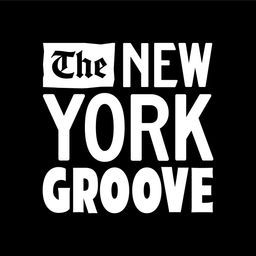
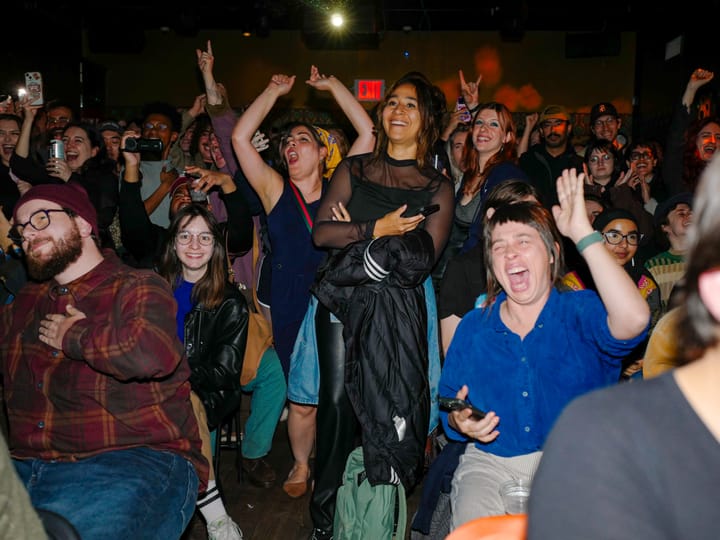
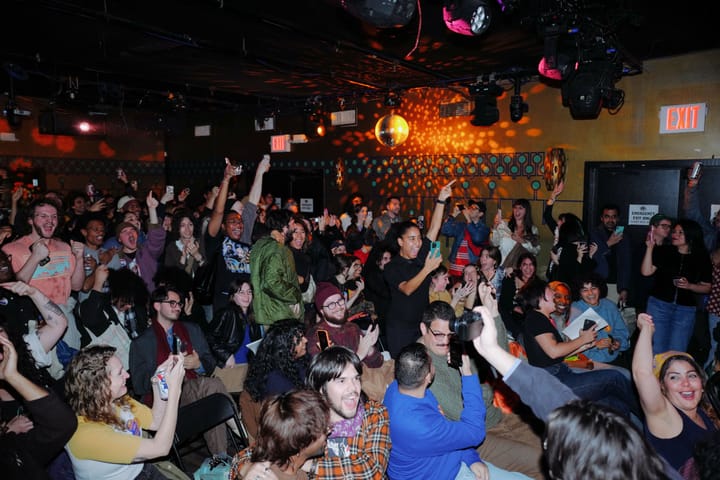
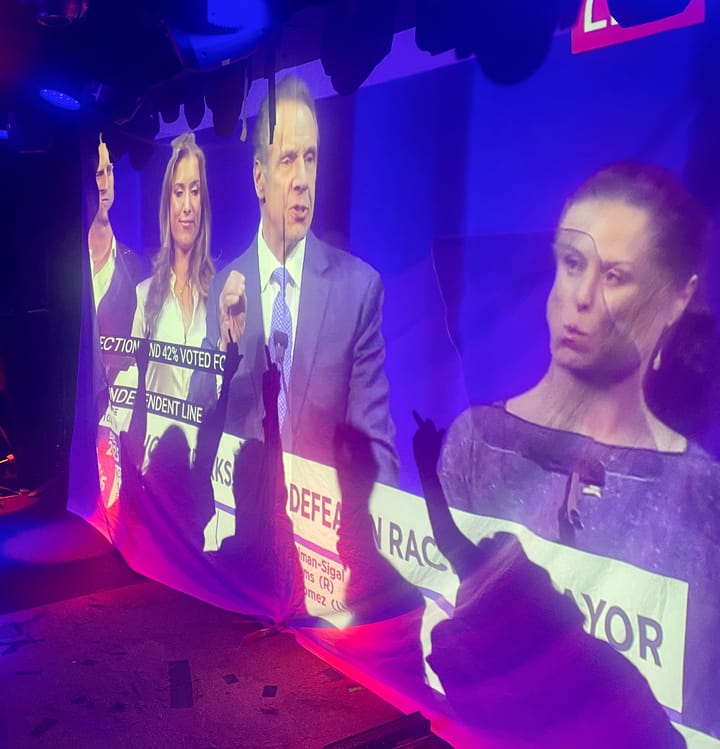
Comments ()